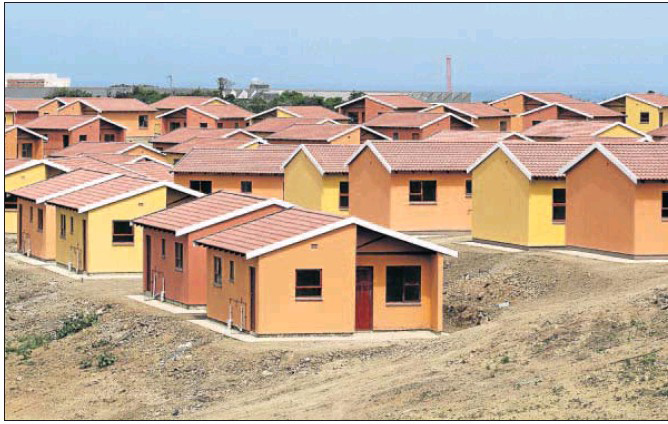
Batanai Matsika WHILE the economic outlook in Zimbabwe remains uncertain on the back of local and global headwinds, Piggy believes that there are indeed pockets of opportunity in certain sectors.
One area that is evident is the surging demand for houses. There is a clear preference for affordable suburban homes within the general populace.
In fact, land barons have been making a killing, particularly in urban areas. In many cases, rogue land barons have taken advantage of the circumstances and haphazardly demarcated and sold pieces of land, some smaller than the stipulated minimum size of 70 square metres.
The demand for affordable housing has also been spurred by rural-to-urban migration. This has also resulted in the mushrooming of illegal settlements on the periphery of major cities and towns.
According to the Africa Housing Finance Yearbook, the unaffordability and unavailability of mortgage finance in Zimbabwe has been the limiting factor for aspiring homebuyers. In addition, new housing is inhibited by inflationary increases in the cost of building materials.
Potential borrowers cannot always afford to raise deposits of an average 25% for housing loans and meet monthly instalments, especially with high interest rates and compressed repayment periods.
As a result, Zimbabwe had a reduction in the number of mortgage loans from 2020. The housing backlog in urban areas is estimated at 1,3 million concentrated within the high-density sector.
The existing stock of housing in this sector is largely inadequate, as many families share houses with lodgers, resulting in crowded and unhealthy living conditions.
- Chamisa under fire over US$120K donation
- Mavhunga puts DeMbare into Chibuku quarterfinals
- Pension funds bet on Cabora Bassa oilfields
- Councils defy govt fire tender directive
Keep Reading
Organisations such as Shelter Afrique have seized the opportunity by extending credit to Zimbabwe’s private sector housing programmes through Zimbabwean institutions to build low-cost houses.
Some of the partnering institutions include BancABC, National Building Society (NBS) and the Urban Development Corporation (UDcorp). Shelter Afrique is a pan-African finance institution involved in housing. It is a partnership of 44 African governments, the African Development Bank and the Africa Reinsurance Corporation. Piggy contends that the availability of credit for low-cost housing developments through institutions like Shelter Afrique can create opportunities for construction and building materials stocks.
The substantial housing backlog is also testimony to a high effective demand for housing.
That demand includes those who want to own houses, those who want rental housing and students who want seasonal accommodation.
Many small-scale businesspeople, for example artisanal miners, farmers, and traders, have resources to buy standalone residential houses or residential stands.
Thus, a sizable market for home ownership exists. Piggy thinks Masimba Holdings is well positioned to take advantage of housing development projects as well as government’s extended infrastructure spending. The company has also been investing in the latest equipment.
The sustained international remittances inflow directed towards the residential housing sector is also expected to continue driving activity in the real estate sub-sector.
- For registrations, sponsorships, and exhibitions, email [email protected] or call +263 773 417 267.
- Get more tidbits on the stock market by joining a PiggyBankAdvisor Telegram Channel (+263 78 358 4745).
- Matsika is the head of research at Morgan & Co, and founder of piggybankadvisor.com. — [email protected]/ [email protected] or +263 783 584 745.











